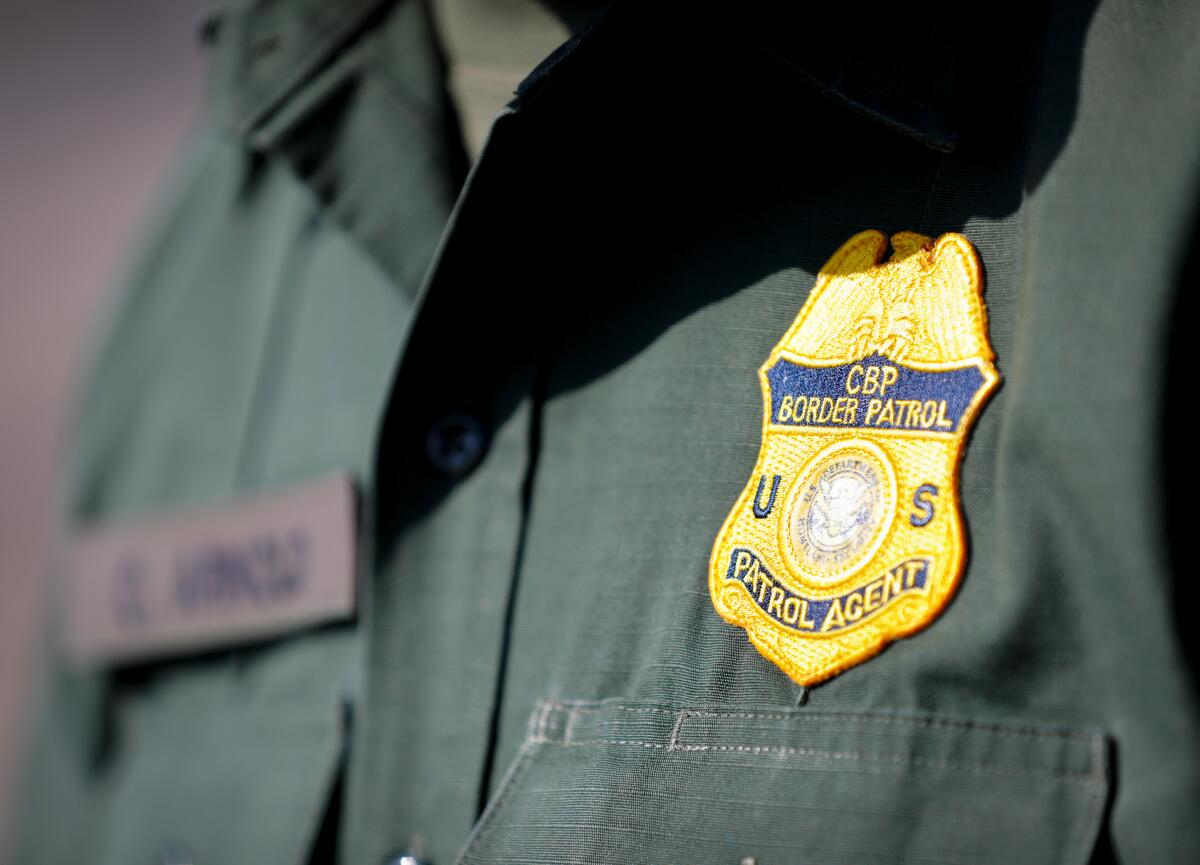Report highlights ‘detrimental’ treatment of minors by border patrol agencies

Customs and Border Protection says the agency has upped their humanitarian efforts and follows strict policies.
- Share via
Several children, both immigrants and citizens, have been “detrimentally impacted” by the enforcement actions of Immigration and Customs Enforcement and Customs and Border Protection, a report from the American Friends Services Committee found.
The findings were researched and put together by the group’s U.S.-Mexico program, which focuses on documenting law enforcement activity and changing any policies and practices “that violate human rights,” said Vanessa Ceceña, who authored the report.
The U.S.-Mexico program has been operating since the 1970s. The organization began receiving more calls complaining of issues at the border, said Pedro Rios, Director of the AFSC, motivating them to revisit examining law enforcement and see if agencies violated any rights.
The new report claims these violations have ranged from officers failing to follow the Flores agreement — which says a minor must be released after about 20 days — to officers accusing minors of smuggling.
“The cases [in the report] involve interactions with immigration officials that have become traumatic events for the children involved,” Ceceña wrote. “Minors reported feeling a heightened sense of anxiety, feeling scared, experiencing trouble sleeping, and not wanting to go to school.”
In the case of detained migrant children, certain rights are guaranteed, regardless of their immigration status. These cover essentials like shelter and food, but also the right to go outside and play. Those released must be placed with family members or guardians as they continue to attend court proceedings. CBP policies outline these rights in further detail.
“There were a lot more cases coming forth this year,” said Ceceña. “There’s a lot more fear in the community and a lot more distrust in general.”
In some cases, administrative complaints were filed to several investigative DHS agencies, including the Office of Inspector General and Office for Civil Rights and Civil Liberties. More serious incidents are referred to attorneys.
Minors’ stories are verified as closely as possible before taking any action, Ceceña said.
“We just have a really thorough conversation with them about what happened exactly,” she said. “We ask them to describe what they were doing, what the interaction was like. In their own words, what the officers were saying and if they had guns on them.”
CBP officials said that over $900 million has been invested into humanitarian costs, including medical care, shelters and basic amenities. Some $35 million was dedicated to transporting migrants from facilities to long-term care and custody, the agency said.
“The allegations within this AFSC report do not align with common practices at our facilities or CBP core values,” said a spokesperson for the agency, adding that investigations into complaints were made by the Department of Homeland Security’s Office of Inspector General.
However, complaints still continue to come in, Ceceña said. The organization met with about 12 to 15 families in the last year, documenting many of those stories in the report.
While several cases have dealt with migrant children, U.S. citizens have also been apprehended at the border, the report claims. A young girl was detained after officers accused her of actually being her Mexican cousin and impersonating her identity. She was eventually released to the Mexican consulate after they intervened.
The AFSC plans to share their findings with local government representatives and with officials in Washington, D.C. Rios hopes it will help influence how the government allocates funding to border patrol agencies.
More to Read
Sign up for Essential California
The most important California stories and recommendations in your inbox every morning.
You may occasionally receive promotional content from the Los Angeles Times.










